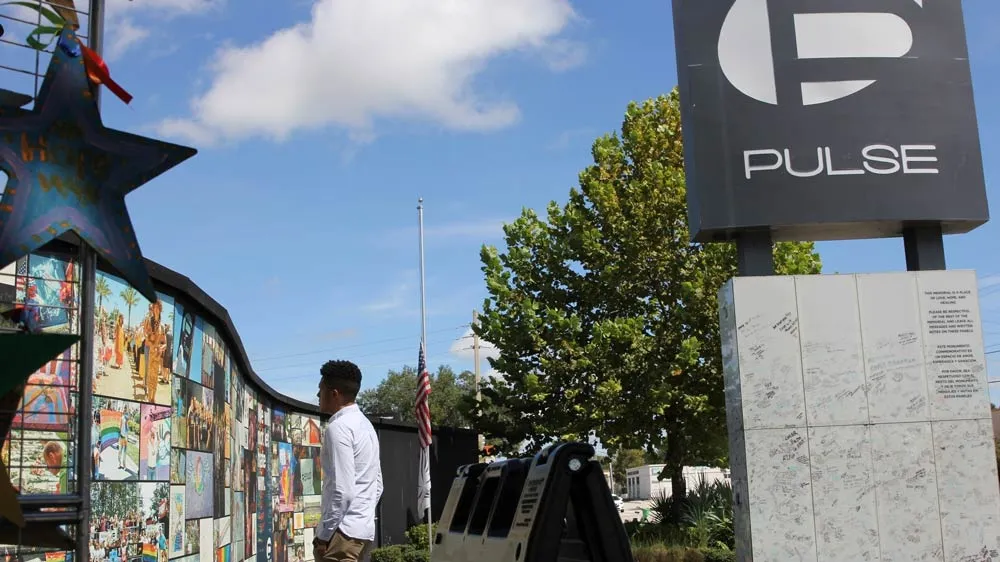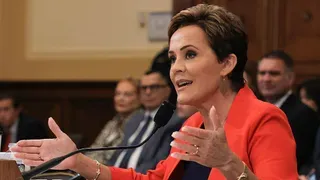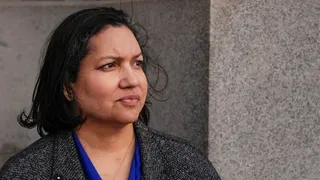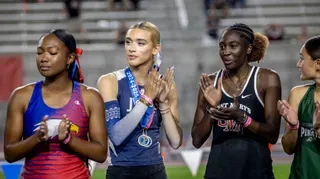November 25, 2010
Anglican conservatives reject global unity plan
Kilian Melloy READ TIME: 3 MIN.
Leaders of conservative Anglicans on Wednesday rejected a proposed covenant to hold their global communion together just as the Church of England gave preliminary approval to the plan.
The covenant, backed by Archbishop of Canterbury Rowan Williams, is intended to contain deep splits within the Anglican Communion over sexuality, the role of women and the authority of the Bible. The communion represents churches affiliated with the Church of England in more than 160 countries.
The Church of England's governing General Synod voted Wednesday to approve draft legislation that could lead to a final vote in 2012. The covenant will now be referred to dioceses for consideration.
The traditionalists dismissed the covenant as "fatally flawed," but the plan also has been attacked by liberals within the church.
"While we acknowledge that the efforts to heal our brokenness through the introduction of an Anglican Covenant were well intentioned, we have come to the conclusion the current text is fatally flawed and so support for this initiative is no longer appropriate," said the statement from leaders of the Fellowship of Confessing Anglicans and the GAFCON movement.
The statement was endorsed by archbishops from West Africa, Rwanda, Tanzania, Nigeria, Uganda, Kenya, Australia and Anglican Church of North America, a breakaway group from the Episcopal Church.
The Episcopal Church caused a major rift by elevating a gay man, V. Gene Robinson, to be bishop of New Hampshire state in 2003. It has since consecrated a lesbian, Mary Glasspool, as assistant bishop of Los Angeles, defying Williams' call for both sides to refrain from provocative moves.
The draft covenant, more than 5,000 words long and seven years in the making, would commit national churches "to act with diligence, care and caution in respect of any action which may provoke controversy."
Disagreements would be referred to a panel of Anglican leaders, which could declare a proposed action to be incompatible with the covenant. National churches would be free to withdraw from the covenant at any time.
The covenant does not take a position on gay clergy or any other of the current issues dividing the communion except, perhaps, the case of traditionalist bishops exercising authority outside their territory, such as the African bishops who are supervising U.S. congregations.
Covenant signers would pledge to "respect the constitutional autonomy of all of the churches of the Anglican Communion."
In the Church of England's debate, Bishop John Saxbee of Lincoln said he feared the covenant would single out some Anglicans to "stand in the corner until they have seen the error of their ways and return to the ranks of the pure and spotless."
Bishop Michael Perham of Gloucester also had reservations, but said he was voting in favor partly out of loyalty to Williams.
Speaking Tuesday at the opening of the Church of England General Synod, Williams said the covenant "offers the possibility of a voluntary promise to consult." He said it recognizes that disagreement may continue and cause ruptures in the communion.
"Now the risk and reality of such rupture is already there, make no mistake. The question is whether we are able to make an intelligent decision about how we deal with it," Williams said.
Liberals in the Church of England fear the covenant would restrict the freedom of the national church. "It would ... make the Church of England subject to an outside power for the first time since Henry VIII," said a statement by one liberal group, Inclusive Church.
The Church of England itself is divided by the issues that trouble the communion. Moves to allow women to serve as bishops, and continuing pressure to accept openly gay bishops, have already caused some bishops to declare that they will leave to join the new "ordinariate" created by Pope Benedict XVI to accommodate Anglicans within the Roman Catholic Church.
Kilian Melloy serves as EDGE Media Network's Associate Arts Editor and Staff Contributor. His professional memberships include the National Lesbian & Gay Journalists Association, the Boston Online Film Critics Association, The Gay and Lesbian Entertainment Critics Association, and the Boston Theater Critics Association's Elliot Norton Awards Committee.







